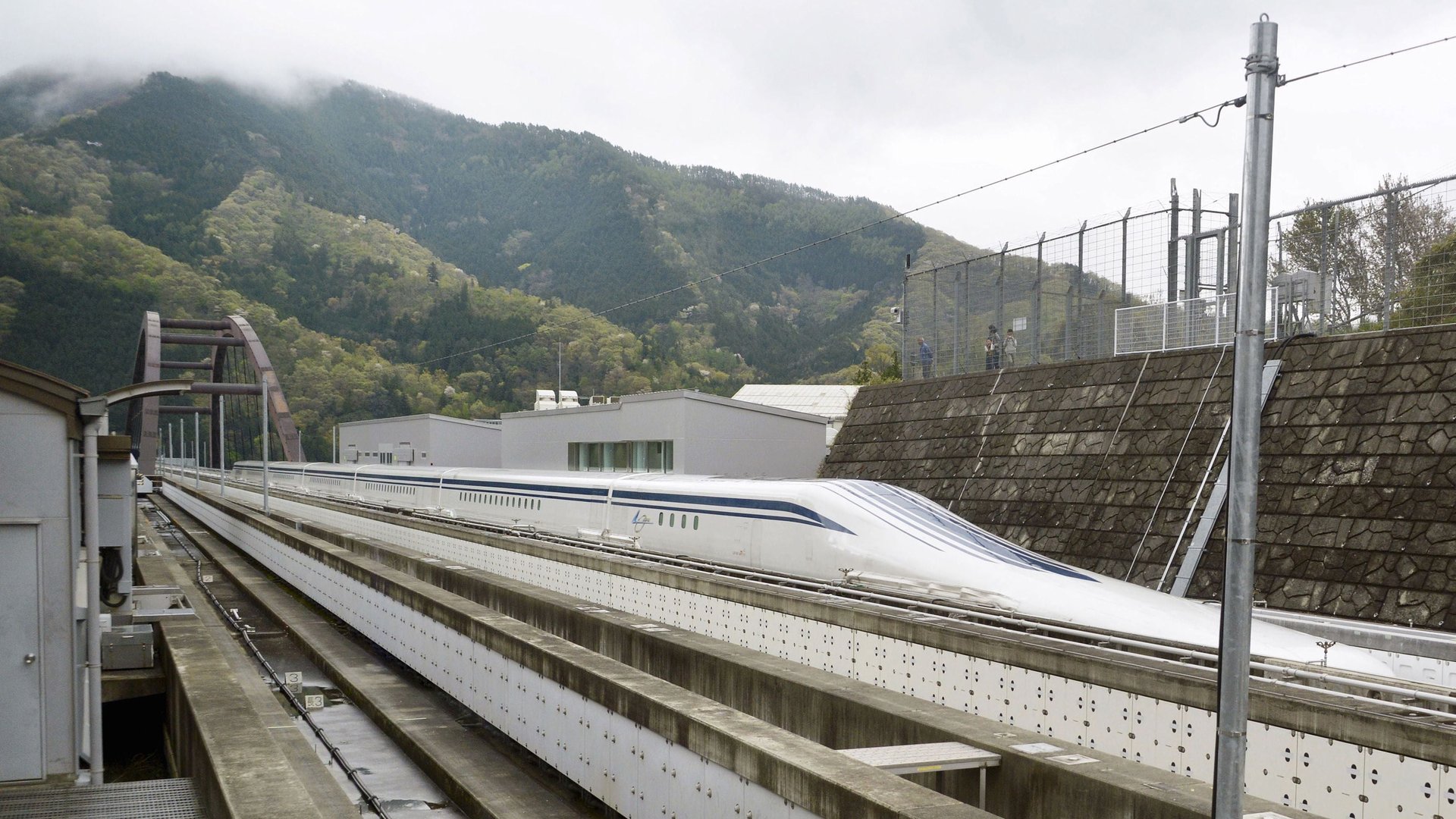A new Japanese train has broken the world speed record twice this week
A Japanese bullet train broke the world speed record for trains in an April 21 test run, clocking in at a blazing 603 km per hour (374 miles per hour) at a track near Mount Fuji. It previously seized the world record when it hit 590 km/h per hour (367 mph) in a test run last week.


A Japanese bullet train broke the world speed record for trains in an April 21 test run, clocking in at a blazing 603 km per hour (374 miles per hour) at a track near Mount Fuji. It previously seized the world record when it hit 590 km/h per hour (367 mph) in a test run last week.
The train, which is owned by the Central Japan Railway Company (JR Central), is what’s known as a “maglev” train—short for magnetic levitation—meaning that the train cars float above the tracks, suspended and propelled by electromagnets. The tests were run as part of a construction project for a high-speed track that will stretch from Tokyo to Nagoya by 2027, and from Tokyo to Osaka by 2045. The infrastructure won’t come cheap: just the first section of track is expected to cost $100 billion.
When both legs are complete, commuters will be able to travel the full stretch in one hour, half the current time. But they won’t be breaking any records on the way to work. The top operating speed of the trains, when filled with passengers, will be just 505 km/h (314 mph).
Japan has long been a leader in high-speed rail travel. In the late 1950s and 1960s, it developed the world’s first system of bullet trains, and the country’s Shinkansen railway system carries 150 million passengers per year. Meanwhile, high-speed rail has caught on elsewhere, in particular in China, which now boasts the largest high-speed rail network, with 16,000 km (9,900 miles) of track.
The US rail system, comparatively, is still stuck in the stone age. Construction of a line that will stretch from San Francisco to Los Angeles, the first high-speed rail system in the country, just got underway earlier this year. According to the BBC, Japanese prime minister Shinzo Abe is expected to talk to US leaders about Japan’s potential contributions to American high-speed rail efforts, on his visit to Washington next week.